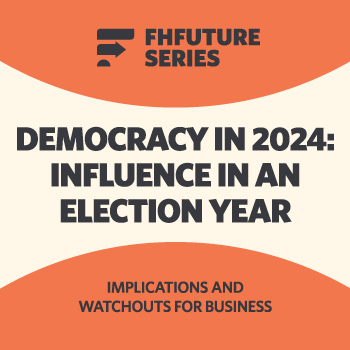We find out Now / Next / Why from Contagious
This week, some of us attended the annual Now / Next / Why briefing from marketing, consumer culture and technology trend analysts Contagious.
It followed on from December’s Most Contagious, which brought together experts from Contagious and leading marketers to explore the major trends affecting our industry now and in the future; now, next and why.
Context is replacing media silos
Now is when omnichannel moves from hype to reality. Omnichannel means the beginning of the end of marketing functioning in traditional media silos.
Next the best marketing is all about contextual integration. As brands get better at distilling meaningful customer insights from big data, brands will be able to ingrate their channels to market to individuals based on their current context.
Already, brands are producing compelling contextual integration. Turkish bank Garanti has developed mobile app iGaranti, which uses contextual information and self-learning algorithms to provide money management advice for customers, e.g. predicting they will underspend by a certain amount one month and suggesting they move the excess to a savings account. On the horizon there are even more possibilities; Philips’ smart lighting tells you where to go in the grocery store for the items on your list using the flicker of lights undetectable by the human eye.
Why should marketers embrace contextual integration? Meeting customer expectations is going to be core to brands success, more so than ever.
We can’t hide from privacy
Now it is clear consumers are not going to accept the death of privacy.
Next, Gartner predict that by 2020, 26 billion things will be connected to the internet. Privacy is going to be difficult in a world of billions of connected devices. However, if brands can agree a fair exchange for the data they collect, it can be an extremely positive trend.
Already Netflix – which collects our viewing habits – is using the information to provide us with a more tailored viewing experience, keeping people using Netflix for longer. The Dallas Museum of Art’s friends’ scheme collects data from visitors in exchange for discounts on things like parking. That data has helped secure the DMA $5 million of new sponsorship.
Why privacy matters is that big data has huge potential for marketers. However, if consumers don’t trust a brand to use their data fairly they won’t share it.
You deliver in 24 hours, so we’ll deliver the same day
Now, an arms race is occurring among brands to achieve the most convenience. Startups have convenience at their core, but enterprises are weaving it into legacy systems.
Next, the most successful retailers will organise around their customer. The best brands will use convenience to gain a competitive advantage.
Seattle-based Hointer – an apparel store created by Amazon co-founder Nadia Shouraboura – uses the customer’s smartphone as “mobile control to the store”. Scan a garments’ label, select the size and it is automatically taken to the fitting room. Once a customer is in the fitting room, more garments can be ordered and payments made. Dynamic pricing ensures customers get the best price. All the time, data is collected and the experience optimised.
Why competitive convenience matters is that as technology improves consumer’s expectations will continue to grow. The brands that innovate early will be best placed to build relationships with consumers.
Authenticity underpins it all
This session was very close to our own hearts because of our Authenticity Gap work.
Now, brands are under ever-increasing public scrutiny. Discrepancies between what they say and what they do affect the bottom line.
Next, brands will refocus on culture. Not just putting a ping pong table in one of the meeting rooms, but identifying and articulating the secret sauce that makes them what they are.
McDonalds’ Our Food/Your Questions campaign used video to take customers inside McDonalds to answer their questions about everything from why burgers look better in the marketing photos to what meat goes into a chicken nugget. The campaign saw a 46% increase in people’s perception of McDonalds as a “company I trust” – yes 46% and their Canada marketing head says that, “This is a platform that’s going to part of our DNA forever.”
Why authenticity matters is that it is the core around which everything else can be built. If consumers know and trust you they will share more with you and be more receptive to you reaching out.
Find Out More
-
Democracy in 2024: Influence in an election year
May 2, 2024
-
Platinum CMS Award
March 13, 2024
-
Changing Communications Tack at Mobile World Congress
February 21, 2024


